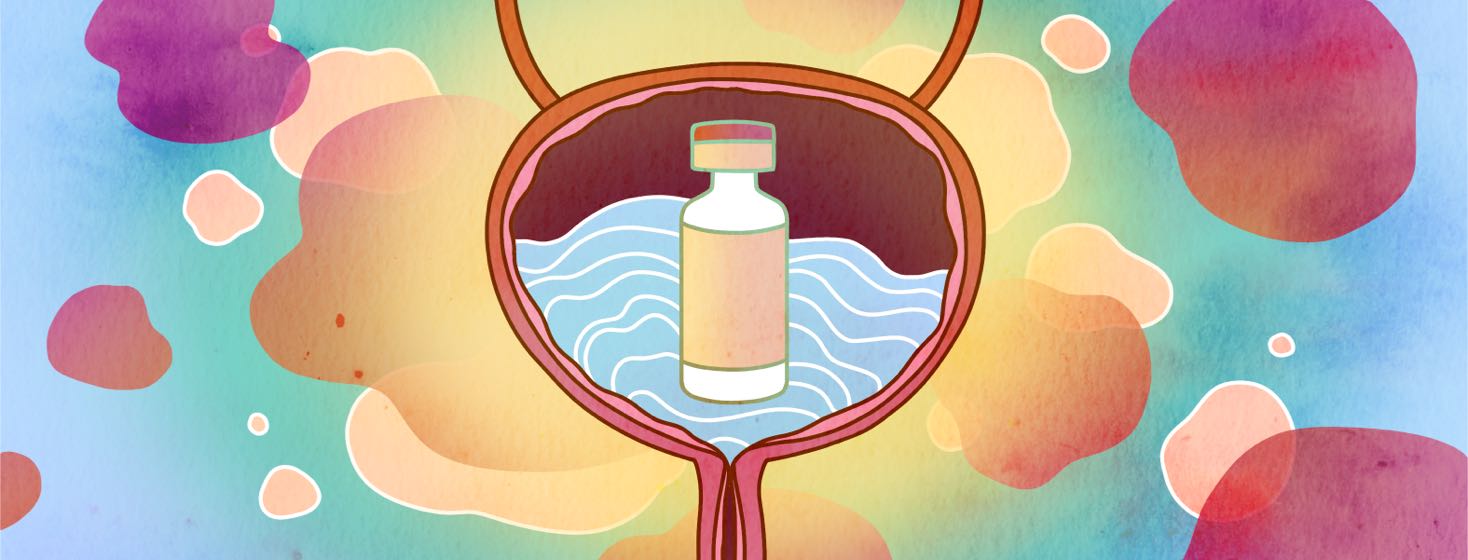Per Mom: On Bacille Calmette-Guerin (BCG)
Mom always told me that she loved how I explained things. She said I had a way of making people understand.
An understanding was something that was sorely lacking in Mom's battle with bladder cancer. I try to remember it was during the heights of the 2020 pandemic.
This author humbly submits this article with hope and in a stand for patient/caregiver empowerment. Let's look at one of the frontline warriors of our battle: BCG, or Bacille Calmette-Guerin.
A tuberculosis drug?
My stomach dropped when Mom told me her first treatment for bladder cancer would be a tuberculosis drug.
All I knew of tuberculosis was from the story of Puccini's opera La Boheme. Many of the artists suffer tuberculosis in the story. Some of the main characters even died from it! So I knew whatever this BCG was, it must be a serious medication to address such a serious disease.
Indeed, at the turn of the century in the early 1900s, tuberculosis was running rampant.
BCG was created to immunize against tuberculosis. Viable treatment was difficult to come by at the time. French scientists Albert Calmette and Camile Guerin worked for 13 years to perfect a weakened version of Micobacterium bovis (M. bovis). The bacteria were isolated from cow's milk. The first administration in a human was in 1921.1
Of course, the spoils of inventing a life-saving vaccine mean you get to name it after yourself! "Bacille" is French for "bacillus," and of course, Calmette and Guerin are our heroes.
Swiss-Army knife of a vaccine?
BCG was embraced by the League of Nations Health Committee in 1928. This committee was the predecessor of the modern-day World Health Organization. Despite this acceptance, the vaccine was not widely used until after WWII.2
BCG was discovered to be effective at treating diseases such as Buruli's ulcer, leprosy, and type 1 diabetes. It is currently in review for indicated use against COVID-19.3
Talk about a multipurpose powerhouse!
But of course, my favorite and most important use of BCG in this community is bladder cancer.
Unique application to bladder cancer
BCG became the first-line defense against bladder cancer in 1977. Since then, whenever someone is discovered to have non-muscle invasive bladder cancer, BCG is the gold standard.
Three is a unique aspect of the use of BCG for bladder cancer. This is the one situation where a large bolus of medication can be delivered directly to a cancer site. A bolus is basically a large amount in terms of dosage.
This means that the entire body need not be exposed to a drug, bacterium, or chemotherapy.
Can we call this a blessing? I suppose.
Mom's hair
Mom was very attached to her hair. She had long, thick, beautiful black hair for as long as I can remember. Her hair was something of a source of pride and identity. So naturally, once this cancer battle erupted, she was concerned with losing her hair.
The intravesical administration meant her head's hair follicles would be unattacked by any drug. Intravesical is a fancy word for "directly into the bladder via the urethra."
I mean, this is kinda cool, right? As cool as a cancer treatment can be, I suppose.
So mysterious
The exact mechanism by which BCG helps so well with bladder cancer is not fully known. Of course, the original and standing hypothesis is that BCG induces an immune response in the urothelial cells to attack cancer.4
Urothelial cells are the cells that line the inside of our bladders and other parts of the urinary tract. The bladder's urothelial cells are the most common site of primary bladder cancer.4
Not without consequence
Of course, it seems that no drug, bacteria, or cytotoxin can be introduced into the body without side-effect.
Mom mainly reported flu-like symptoms, as far as body pain and aches. She also reported itching or burning when urinating, especially toward the end of the treatment cycle. Her energy would be very low, and she didn't have much of an appetite.
However, she didn't lose her hair! Mom would joke that she would feel better just in time for another treatment! She usually felt better from a BCG instillation about 3 to 4 days later.
We felt lucky and were so hopeful that this powerhouse and multi-use vaccine would save Mom's bladder. That was Mom's biggest concern, even over her hair.
What has your experience been on BCG? Tell us about your experience in the comments below, or share your story with the community.

Join the conversation